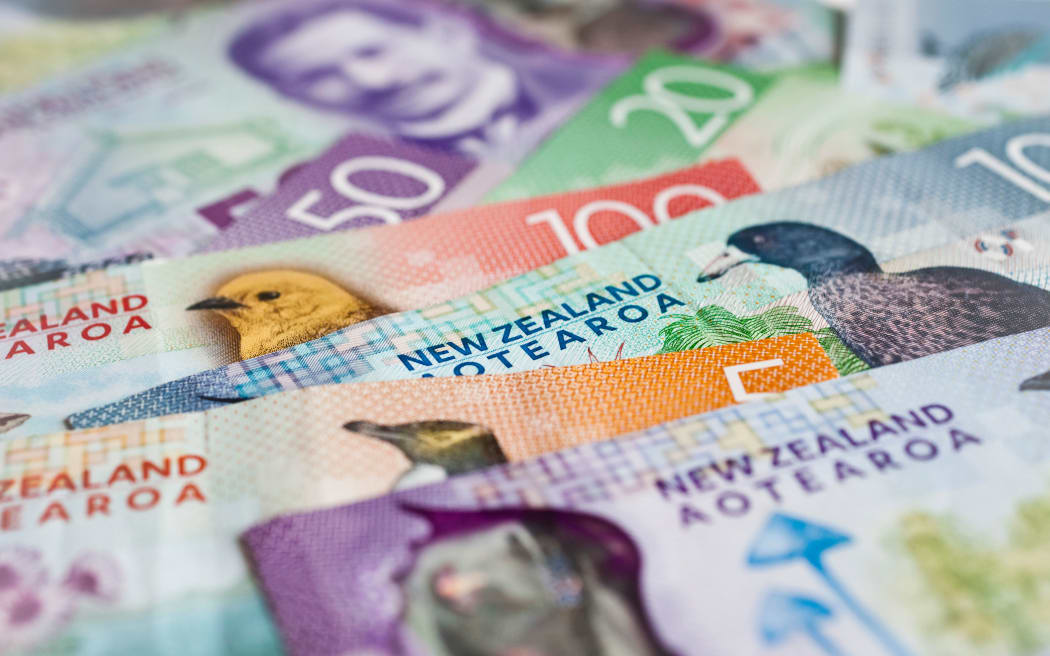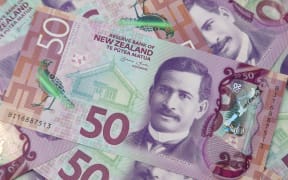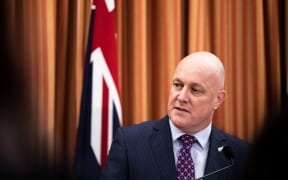
The half-year economic and fiscal update (HYEFU) shows a smaller budget deficit for the current financial year. (file picture) Photo: 123RF
The economy is headed for a shallow recession but the government finances are expected to hold up reasonably well as strong tax revenue continues to support expected higher spending, according to the Treasury.
The half-year economic and fiscal update (HYEFU) shows a smaller budget deficit for the current financial year, because of strong employment boosting income tax, and restraint on spending.
Key economic numbers (for year ended June 2023 vs Budget 2022 forecasts)
- GDP (annual) 3.5 pct vs 3.3 pct
- Inflation 6.4 pct vs 5.2pct
- Unemployment 3.8 pct vs 3.3 pct
- House inflation -13.0 pct vs -2.5 pct
Key fiscal numbers (for year ended June 2023 vs Budget 2022 forecasts)
- Core tax revenue $118.1b vs $116.1b
- Core expenses $129.3b vs $127.1b
- OBEGAL -$ 3.6b vs -$ 6.6b
- Net debt (pct GDP) 19.9 vs 18.7
Finance Minister Grant Robertson said the government financial policy was moving from coping with global health risks to global economic headwinds.
"A challenging year lies ahead."
He said it was now time for the government finances to be returned to a more prudent level after the Covid-related spending and more latterly assistance for cost of living pressures.
"We need to be flexible, careful, and balanced."

Finance Minister Grant Robertson Photo: RNZ / Samuel Rillstone
Robertson said government spending would become more targeted, and policies would be reprioritised and where necessary funds reallocated or saved, and over the forecast period government spending as a proportion of the economy would fall and ease inflation pressures.
"It is time for fiscal policy to aid the Reserve Bank's monetary policy."
He said some belt tightening was now necessary.
As part of that the government moved to phase out the half-price public transport subsidy, road user charges, and the cut to the petrol excise from March next year.
The Treasury commentary highlighted uncertainty around the forecasts including its assumptions on global growth, inflation pressures, rising interest rates, and the Ukraine war.
Economic growth was forecast to worsen in 2023/24, resulting in a shallow recession with the economy contracting by 0.3 percent in the year ended June 2024, while inflation was forecast to stay higher for longer, peaking early next year above 7 percent before gradually falling back in later years.
Unemployment was expected to rise hitting 5.5 percent in 2024 from the current 3.3 percent level.
However, the current strong labour market and wage growth matching inflation was supporting households and the government tax take, while the Treasury was forecasting government expenses would be raised in part because of high social welfare spending.
"We will continue to support New Zealanders through good times and bad," Robertson said.
Current account deficit at record level
The current account deficit has widened to its highest level on record.
The deficit for the year ended September was $29.7 billion, equating to 7.9 percent of gross domestic product.
It surpasses the deficit equating to 7.8 percent of GDP recorded in both 2008 and in 2006.
The current account, otherwise known as the balance of payments, measures the imports and exports of goods and services, the value of foreign assets and liabilities, and capital transfers.
Deficits show how much money the country needs to borrow.
The seasonally adjusted current account deficit narrowed by $1.3b to $5.9b in the September quarter, Stats NZ said.






